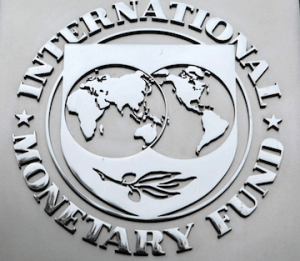IMF wants Ghana to identify full cost of 2016 elections to avoid fiscal overruns
 It is known that every election year in Ghana, government budget and financial programmes overrun projected and allocated limits – it is a historical fact.
It is known that every election year in Ghana, government budget and financial programmes overrun projected and allocated limits – it is a historical fact.
The International Monetary Fund (IMF) has therefore called on the government to identify the full cost of the 2016 elections ahead of time and make provision for it.
“To avoid the risk of fiscal overruns in connection with next year’s election, it is imperative to identify the full cost related to the elections as early as possible and provision for it in the 2016 budget,” The IMF said after its Executive Board yesterday August 31, 2015, completed its first review of Ghana’s economic performance under the programme supported by a $918 million Extended Credit Facility (ECF) arrangement and went ahead to disburse the second tranche of the financial package amounting to $116.6 million.
Earlier in the year, the IMF released the first tranche of $114 million to the Bank of Ghana.
According to the IMF, while it is important to ensure that the country’s fiscal targets will be achieved. It is also important that the ongoing wage negotiations result in a wage agreement consistent with the medium-term wage bill envelope, and further enhancing revenue performance will also be key for continued fiscal consolidation.
The World Bank earlier in August, expressed fears that the country might not be able to stay within budget as 2016 beckons and the implementation of the recently acquired IMF Programme is likely to suffer slippages.
Mr. Min Zhu, the Acting Chair and Deputy Managing Director of the IMF was cited as saying, “Implementation of the ECF-supported programme by the Ghanaian authorities has been broadly satisfactory, despite an unfavorable economic environment. In particular, the government’s fiscal consolidation efforts are on track and it is encouraging that the government decided to liberalize the prices of fuel products, which bodes well for expenditure control, eliminating the need for fuel subsidies and the incurrence of arrears.”
According to him, “The government should firmly continue with its fiscal consolidation efforts to fully restore macroeconomic stability and mitigate financing risk. In this regard, it is crucial to continue the policy of controlling the wage bill by adhering to the net hiring freeze, excluding for health care and education, while further implementing the payroll clean-up plan. The government should continue to adhere to the domestic arrears clearance plan and avoid incurring any new arrears. Implementing structural reforms to strengthen expenditure control will support these efforts. At the same time, the government should use the resulting fiscal space to enhance its social protection programs to mitigate the potential impact of the fiscal consolidation on the poor.”
On the 2016 election spending, he said, “To avoid the risk of fiscal overruns in connection with next year’s election, it is imperative to identify the full cost related to the elections as early as possible and provision for it in the 2016 budget, while ensuring that the fiscal targets will be achieved. It is also important that the ongoing wage negotiations result in a wage agreement consistent with the medium-term wage bill envelope. Further enhancing revenue performance will also be key for continued fiscal consolidation.
Mr. Zhu, however believes that the government’s medium-term debt management strategy is a welcome step to help reduce near-term financing risks.
“The externally-oriented financing envisaged in 2015 will help reduce the pressure on the domestic debt market. However, the government should complement this strategy by striving to deepen the domestic debt market, as well as by seeking to borrow externally on concessional terms as much as possible,” he said.
On monetary policy, Mr. Zhu said, “The monetary policy stance will have to remain tight to help bring inflation down, against the background of exchange rate volatility. Bank of Ghana should stand ready to tighten monetary policy further if inflationary pressures do not recede as expected. The decision to introduce new liquidity management instruments is encouraging, as it will improve monetary policy transmission and make the inflation targeting framework more effective. Moreover, prompt implementation of two new banking laws currently under review by Parliament will help safeguard financial sector stability.”
By Emmanuel K. Dogbevi
